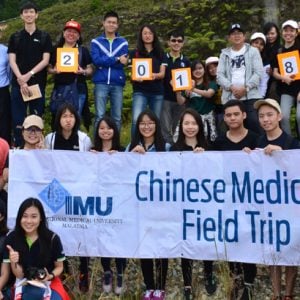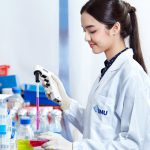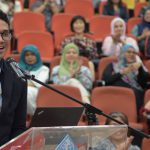A final-year IMU Medical Biotechnology student from the MB1/21 cohort stepped out of her comfort zone and completed her industrial training semester at the Institute of Molecular and Cell Biology (IMCB), A*STAR, Singapore. Her growth is evident through her contribution to a drug discovery project on metabolic intervention in hepatocellular carcinoma (HCC). Here, she shares her journey throughout the internship.
How It Happened?
As a medical biotechnology student, oncology and protein translational pathways had always been my passion for research. While searching for potential internship placements, it was the resources, network, and family advice that led my attention to relevant research opportunities in Singapore. I was thrilled to receive an interview invitation from my hiring supervisor, Dr Ong Qunxiang, a senior research fellow from IMCB at A*STAR. The acceptance of my attachment had marked my journey to venture into the field of oncology and drug discovery.
The Process
HCC is known to be one of the most devastating cancer concerns in Asia. Being part of a research group in a pioneering research institute to investigate on HCC metabolic pathways was a great honour and I was glad to contribute to drug discovery at its primary screening phase. The cellular experiments include biochemical assays like cell proliferation assays, cellular screening assays such as SDS PAGE + western blot, and cellular thermal shift assay (CETSA). The preliminary screening tests had seen different drug reactions on different mammalian cell lines, whereby every finding leads us closer to a better-performing drug compound.
With progress, my improved skillsets were recognised, in which I received a small leading role in another HCC protein purification project. With guidance from my colleague, I gained fundamental understanding in protein expression and the downstream purification processes to finally obtain the recombinant protein of interest.
Proudly, the findings received positive feedback from my supervisor, in which the generated results also contributed to grant proposal writings.
Most Challenging
Starting off in an unfamiliar environment with only fundamental knowledge on laboratory skills was overwhelming. It was routine to conduct drug screening cellular assays, while taking up small roles in other projects, then obtaining results and updating weekly reports. Tasks after tasks made me realize that this might just be the normal routine for a research personnel, not to mention that one also needs to attend meetings and conferences, write proposals as well as reports.
Remarkably, the exhausting tasks were not barriers, but a motivation for me to thrive and contribute further to research findings. While completing the mentioned tasks, I found myself also guiding and helping the new interns towards the end of my attachment.
Appreciation
Through this internship, I am grateful to have acquired the fundamental knowledge and primary hands-on experience from Medical Biotechnology (MB) Programme. The programme also bestowed students with self-directed learning abilities, science communication skills, and proper time management, which are as equally important as laboratory techniques to conduct experiments.
Apart from that, I would like to express my utmost gratitude to Dr Tan Boon Hooi (internal supervisor), Dr Ong Qunxiang (external supervisor), Rachel Lim (external co-supervisor), and my colleagues for their guidance and aid throughout the industrial training.

With the staff from A*STAR (L_R): Dr Ong Qunxiang (external supervisor), Low Jun Ying (research intern), Christine (research intern), Rachel Lim (external co-supervisor), Alicia (research officer)
Results
An oral presentation and internship report submission marked the end of my internship placement. I was glad to have invited my external co-supervisor, Rachel Lim, to attend my presentation, as she was my primary mentor, who guided my laboratory skills and witnessed my development during the placement. I was overwhelmed with joy when I received positive feedback on my performance from the external supervisors.
The experience of joining a research group in a pioneering research institute was incredibly valuable, as I gained beneficial skills and enjoyed the enriching experience of learning from industry professionals.

The entire research group.
How did Medical Biotechnology at IMU Help?
The internship experience echoes what I have learnt from Medical Biotechnology. Beyond following protocols and SOPs, scientific research demands creative thinking and innovative problem-solving solutions to achieve optimal results. I am appreciative of every learning opportunity and to share my experiences as a research intern to the public, as it undoubtedly gives a general prospect of the hardships of every research personnel in the world.
Advice for Peers
I hope that this article reaches my peers that are facing overwhelming challenges in life.
When in doubt, note that you are not alone, and your value extends far beyond your current situation. In a race, not all participants finish at the same time, and victory may not solely be decided by who crosses the finish line first. With the right mindset to constantly improve, anyone can possess the skills and potential to pursue better opportunities.
Written by MB121 student, Low Jun Ying









